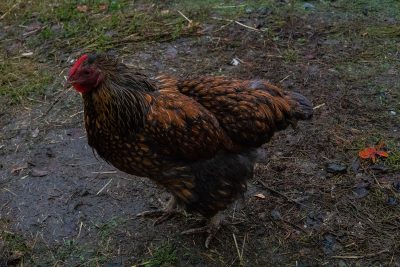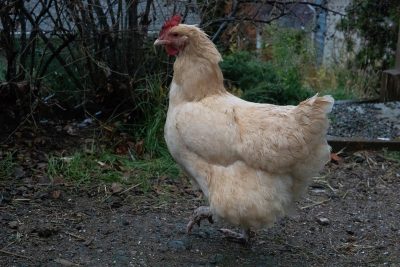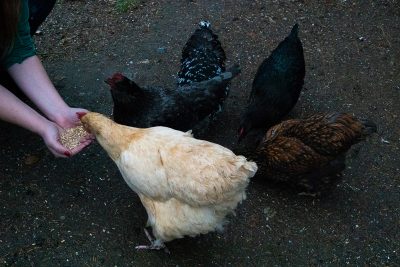Contributor(s): Kasahra Atkins, Hanna Martens, Kien Nguyen, Christian Varty
A recent addition to sustainable food habits within Kamloops has been the inclusion of laying hens. The opportunity for people to raise laying hens has been an exciting development. The policy change is thanks to a group of locals who were passionate about the subject and wanted to improve the Kamloops local food system. The idea of urban hens was supported by the Kamloops Food and Urban Agriculture Plan (FUAP), which responded to community desire for sustainability, food security, and urban agriculture.
The Requirements
To house hens in your backyard, the hens must be registered with the City of Kamloops. All urban hens must be kept humanely and be provided with adequate space and shelter. While hatching hens is alright, raising chicks is not allowed due to the ‘women only’ rule. Only hens are allowed within city limits, no roosters. Each city has a different coop requirement, with Kamloops leaning on the larger side of things. The city requires you must provide a minimum 0.5 m2 per hen inside the coop, and a minimum 1 m2 per hen outside the coop. Additionally, you must have a minimum of two hens in a coop. There are also yard size requirements and fenced yard requirements.
Photos by: Kien Nguyen
The Benefit of hens
Hens, in addition to being a fun and educational hobby, also help benefit the owner in multiple ways. Hens able to wander the yard, especially in a movable coop, will fertilize the ground they explore. The hens will promote vegetative growth, and bring more insects and life into the yard. They enjoy eating the leftovers from dinner when offered vegetables and fruit. They will even help reduce and promote composting. Obviously, the best benefit to housing hens is the daily provided eggs. Families with children are a great place for hens as it educates the kids and helps promote routine and caregiving. The hens are not hard to take care of and love seeds and mealworm treats. They are a great first step to exploring sustainable living.
How to Get Involved
If you are interested in having hens, the first step is to do a little research. The city has a brochure that explains all of the requirements for housing chickens that is a must-read. Then it’s time to decide whether you want to buy or rent. For someone who is still unsure about the commitment of hens, there are options. As shown in the video, Marie McGivern is with the Rent The Chicken in Cherry Creek. There you are able to rent a coop with 2-4 chickens that will stay with you for six months over the summer. You will be provided with all the food and requirements needed. At that point, you can enjoy the rewards and have a fun summer loving your new chickens.
Video produced by: Christian Varty


